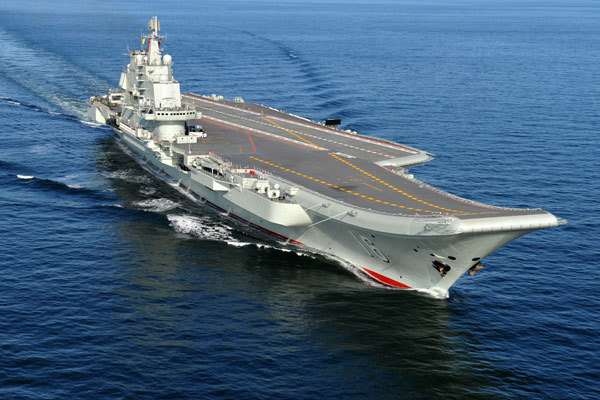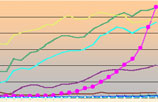Manila's antics just self-serving troublemaking
By Wang Hui (China Daily) Updated: 2015-02-04 07:41
 |
|
China's sole aircraft carrier leaves for the South China Sea.[Photo by Li Tang / for China Daily] |
To confront Beijing over their South China Sea territorial dispute, Manila has resorted to many tricks in recent years. Its real intention is to lead others by the nose and cajole them into believing the story of its own making in which it portrays itself as a weak and small country trying to stand up to the bullying of a big neighbor.
The recent remarks from Philippine Foreign Secretary Albert del Rosario are just one example of this.
At a recent meeting among top diplomats of the Association of Southeast Asian Nations, del Rosario called for a "collective and unified" ASEAN stance on the South China Sea dispute, alleging that the bloc's "silence" and "inaction" on the issue would undermine its "principle of centrality".
The rhetoric from Manila's top diplomat bears every emblem of sowing seeds of dissent between China and ASEAN.
As a member of ASEAN, Manila should clearly know the bloc works through consensus and it has never been a political alliance throughout its half-century history.
Neither should Manila pretend to be ignorant over the fact that ASEAN does have a collective and unified stance on the South China Sea issue, which is crystallized in the Declaration on the Conduct of Parties in the South China Sea it signed with China in 2002.
China and ASEAN have agreed to work for comprehensive and effective implementation of the Declaration by negotiating through consultations a code of conduct for the South China Seas. Consultations on a code of conduct have been held since 2013.
China's Foreign Ministry Spokesperson Hua Chunying told a routine press briefing on Friday that the consultations have made positive progress and all sides have agreed to complete a code of conduct at an early date.
As such, del Rosario's finger pointing at ASEAN is groundless as well as ill-intentioned. By seeking to drive a wedge between ASEAN and China, it is meant to disrupt consultations between the two sides over the code of conduct so it can continue to fish in troubled waters.










